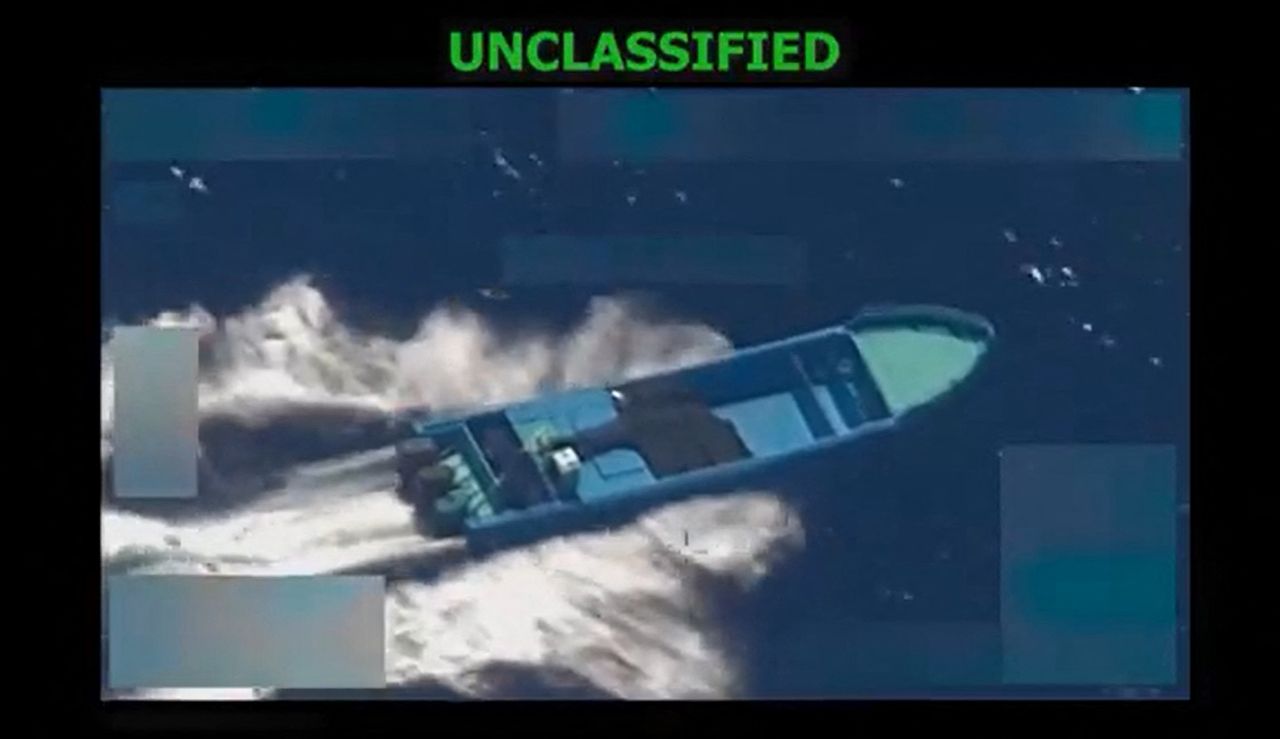 WASHINGTON (Reuters) — The US military killed two alleged drug smugglers in a strike against a vessel in the Eastern Pacific Ocean, US Defense Secretary Pete Hegseth said on Wednesday, an attack that expands the Trump administration’s use of the military in its counternarcotics campaign.
WASHINGTON (Reuters) — The US military killed two alleged drug smugglers in a strike against a vessel in the Eastern Pacific Ocean, US Defense Secretary Pete Hegseth said on Wednesday, an attack that expands the Trump administration’s use of the military in its counternarcotics campaign.
The strike is the first known US military operation in the Pacific since US President Donald Trump started a new military offensive against the drug trade that has led to at least seven strikes in the Caribbean and dramatically raised US tensions with Venezuela and Colombia.
“The vessel was known by our intelligence to be involved in illicit narcotics smuggling, was transiting along a known narco-trafficking transit route, and carrying narcotics,” Hegseth said, without providing evidence.
He posted a roughly 30-second video on X, which appeared to show a vessel traveling in the water before exploding.
The strikes in the Caribbean have killed at least 32 people, but the Trump administration has provided few details, such as how many alleged drugs the targeted vessels were carrying or what specific evidence it had to suggest they were carrying drugs.
Trump, asked about the strike by reporters in the Oval Office, said his administration had the legal authority to carry them out and that he believed each strike saved American lives.
Trump also reiterated plans to strike targets on the ground in Venezuela, which would be an escalation. He said if he takes this step, his administration likely would inform the US Congress.
“We’ll probably go back to Congress and explain exactly what we’re doing when we come to the land,” Trump said. “We don’t have to do that, but I think … I’d like to do that.” Legal experts have questioned why the US military is carrying out the strikes, instead of the Coast Guard, which is the main US maritime law enforcement agency, and why other efforts to halt the shipments are not made before resorting to deadly strikes.
The latest strike, which was first reported by CBS News, comes against the backdrop of a US military buildup in the Caribbean that includes guided missile destroyers, F-35 fighter jets, a nuclear submarine and around 6,500 troops.
In August, the Coast Guard launched an operation, known as Operation Viper, to interdict drugs in the Pacific Ocean. As of Oct. 15, the Coast Guard said it had seized more than 45,300 kilograms of cocaine.
It was unclear why the administration carried out a strike in this instance instead of interdicting the vessel.
Last week, Reuters was first to report that two alleged drug traffickers survived a US military strike in the Caribbean.
They were rescued and brought to a US Navy warship before being repatriated to their home countries of Colombia and Ecuador.
- 2 NK soldiers briefly cross MDL to apparently chase defecting soldier: sources
- Hybe partners with LAFC
- N. Korea breaks ground on memorial museum for its troops killed in Russia’s war with Ukraine
- Seoul shares open sharply higher on eased US-China tensions
- Lee says ‘carefully’ reviewing impact on financial markets during US tariff talks










Most Commented